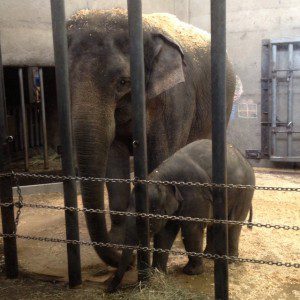 Holiness involves the humane treatment of animals. This is not a politically correct statement, but a biblically correct one.
Holiness involves the humane treatment of animals. This is not a politically correct statement, but a biblically correct one.
Note for example the prohibition against boiling a young goat in its mother’s milk in Exodus 23:19, Exodus 34:26, and Deuteronomy 14:21. The latter passage reads: “You shall not eat anything that has died naturally. You may give it to the sojourner who is within your towns, that he may eat it, or you may sell it to a foreigner. For you are a people holy to the LORD your God. You shall not boil a young goat in its mother’s milk” (Deuteronomy 14:21).
One might be tempted to think this prohibition comes out of nowhere. I beg to differ. I maintain that this prohibition to boil a young goat in its mother’s milk is bound up with God’s abiding concern to distinguish his people from the surrounding nations. As with the prohibition to eat anything that has died naturally, this prohibition is connected to Israel being “a people holy to the LORD your God.” It has been argued that some of the foreign nations sought their gods’ blessing and aid through the practice of boiling a young goat in its mother’s milk for greater agricultural yields and the increased fertility of their flocks. God and his people are very different from those gods and nations engaged in such practices. God demonstrates his uniqueness and holiness in prohibiting his holy people from copying such customs and practices.
Holiness is not prudish and irrelevant to creation’s and society’s well-being. Holiness involves humaneness. The practice of boiling a young goat in its mother’s milk was cruel and inhumane. The Jewish Scriptures forbid cruelty and promote minimal suffering of animals slaughtered for ritual purposes and for food. See, for example, section 112 of Rabbi David Sears’ work, The Vision of Eden: Animal Welfare and Vegetarianism in Jewish Law and Mysticism. There it reads:
The act of slaughter must be sanctified in a unique manner – “as I have commanded you” – with a minimum of pain to the animal. Thus, the person will take to heart the fact that he is not involved with a random object that moves about like an automaton, but with a living, feeling creature. He must become attuned to its senses, even to its emotions, to the feeling it has for the life of its family members, and to its compassion for its own offspring. Thus, it is biblically forbidden to kill the mother bird with her children on the same day, or to slaughter a calf before it is eight days old; and it is a positive precept to send away the mother bird before taking her young. (Rabbi Avraham Yitzchak Kook, Chazon HaTzimchonut V’HaShalom, sec. 14).
See also The Vision of Eden, section 113: “Israel was only given the laws of ritual slaughter to refine their moral sensitivities.”
In addition to the needless harming of animals, those who coarsen rather than refine their moral sensitivities in this way hurt their own humanity. Those who treat animals harshly may very well harden themselves toward compassionate care for their fellow humans. To the degree one lacks compassion for animals and one’s fellows, to that degree one lacks humaneness and holiness.
I am grateful for Judaism’s rigorous concern for humaneness and holiness. Given the fundamental connection between the Hebrew Scriptures and New Testament for orthodox Christians in view of Jesus’ view of the Jewish Scriptures (See Matthew 5:17-20), Evangelicals must be equally concerned. Here I also call to mind the Book of Hebrews, which presents Jesus as the once-for-all sacrifice who brings to an end all ritual sacrifices of animals for sin (See Hebrews 10:1-18). The more seriously we Evangelicals take the Jewish Scriptures and Jesus’ humane and holy sacrifice, the more seriously we will take the humane treatment of animals.
I am grateful that the Evangelical Channel at Patheos is speaking out on behalf of animal welfare. You can find important resources on this subject at Evangelicals on Animal Welfare. In closing, the more Evangelicals care for the humane treatment of animals the more humane and holy we will be.












